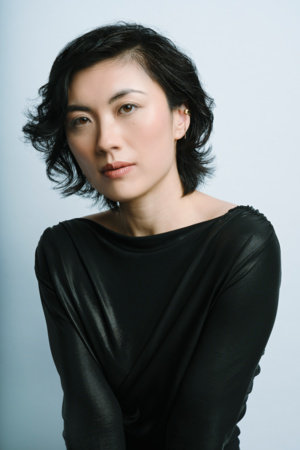
Books about climate disasters are usually not my thing. Floods, blizzards of massive proportions, heat waves, etc. generally do not appeal to me. But…disrupt my food chain? Bring the earth to the brink of global starvation? Now you have got me hooked. I become the living definition of “hangry” if my snacks are taken from me. So, when I read the premise of C. Pam Zhang’s Land of Milk and Honey I was intrigued.
Our narrator is an unnamed twenty-something chef who is working at a restaurant in England when the world is beset by a mysterious “smog cloud ” which blocks out the sun, effectively reducing the global food supply to a grey gruel. As food becomes more scarce, she takes a job as a private chef in the mountains of Italy. For an audition her new employer leaves a box containing flour, vanilla, eggs, and fresh strawberries along with a note reading, “Impress Me.” Ok, that’s a little intimidating.
It turns out our chef is working for a tough guy with “dead shark-eyes.” He speaks in pronouncements, lives in a super-cool “lair” and has a subterranean laboratory in which he recreates the world’s lost species (even those that were extinct prior to the smog cloud appearing). He invites the super-wealthy to partake in the meals our chef creates.
In this isolated community, our chef’s only companion is the boss’s daughter, Aida, an imperious, bipolar geneticist bent on creating more creative biological creatures. Aida is not necessarily trying to feed the planet, but to entertain the compound’s super wealthy residents and potential investors with new (and old) foodstuffs. As our chef creates meals for this select group, it becomes clear that Aida and her father see their facility as the earth’s last hope for sustainability and that chef was hired less for her cooking skills than for being an Asian woman of a certain age.
This is a creepy, atmospheric read. You must let yourself be drawn into the story and the characters’ heads; unclear motivations become clear, and relationships that seem complicated often reveal themselves to be very simple. The language is spare, beautiful, and evocative. Zhang’s writing made me feel as if I was existing in a bunker — claustrophobic and spare, the walls moving closer and closer.
Climate disaster + food + subterranean lab = one atmospheric read.
Please pick up this book if you enjoyed The Glass Hotel by Emily St. John Mandel or The Heart Goes Last by Margaret Atwood.

Discover more from Cook Memorial Public Library District
Subscribe to get the latest posts sent to your email.
Categories: Books and More
Tags: Books and More
